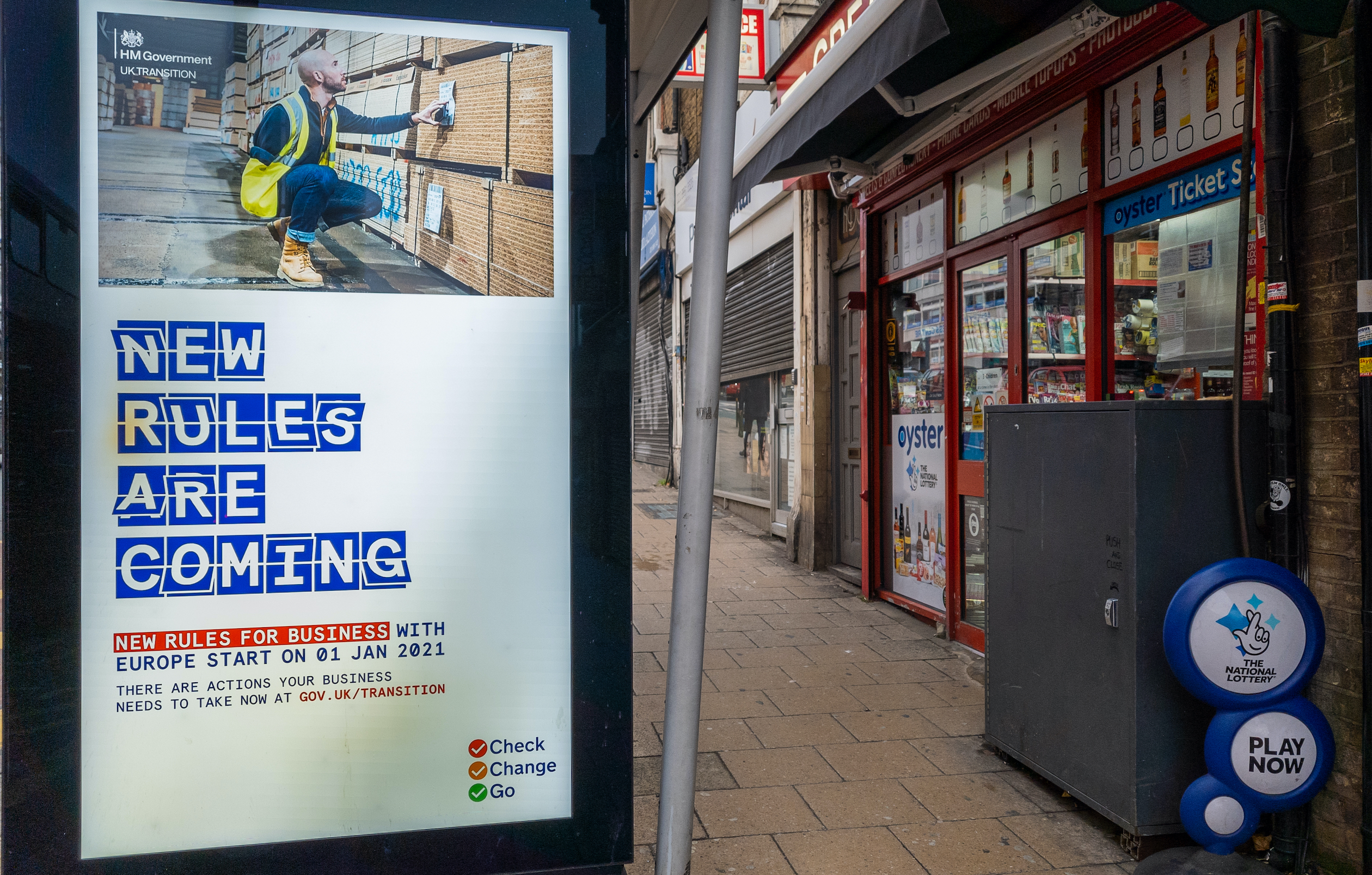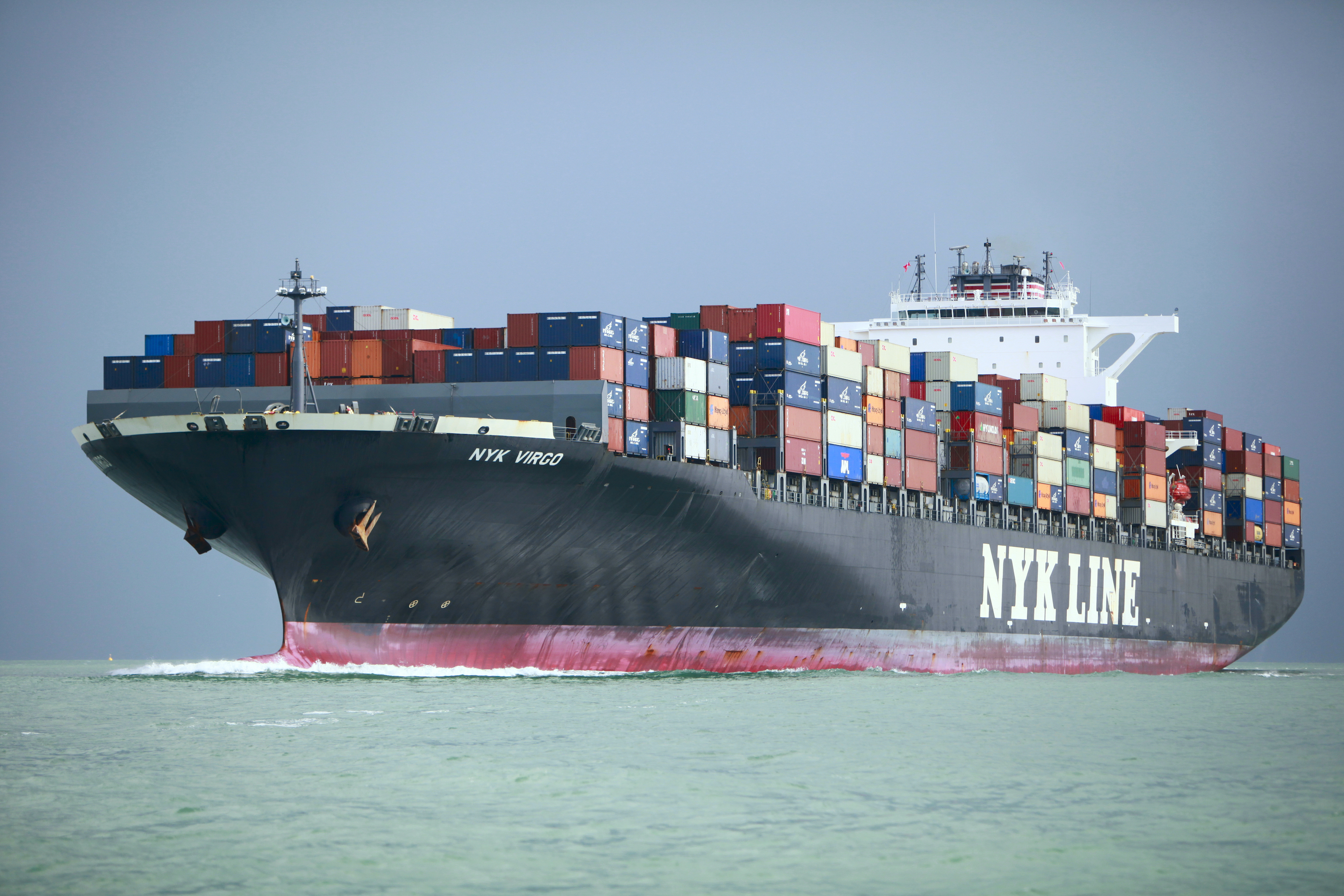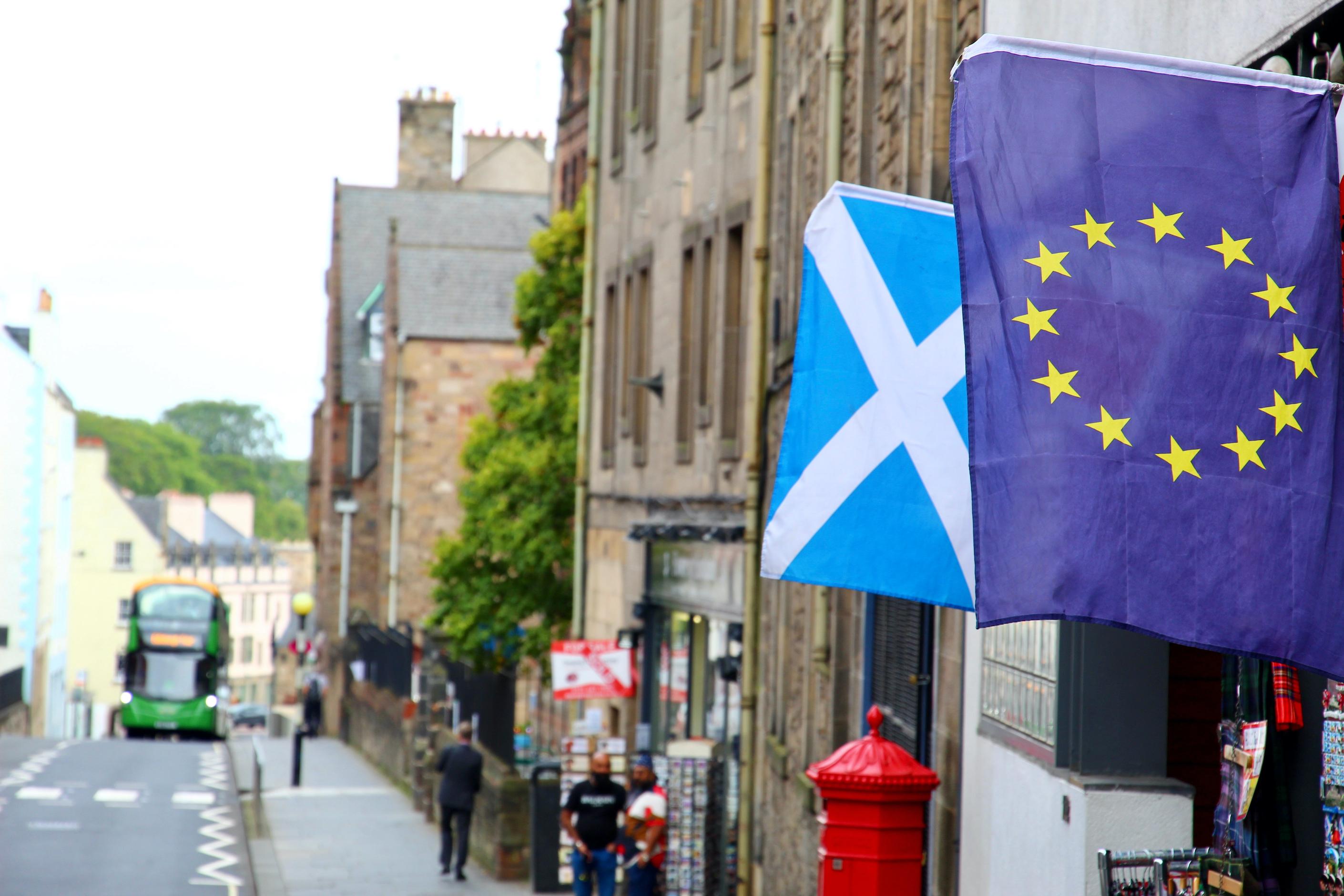One of the interesting things when it comes to assessing Brexit and its impact on the United Kingdom is that it’s virtually impossible to do so because we’ve had the pandemic and that has drowned everything else out. It’s all we talk about, think about or care about. It’s had an impact on trade, which means it’s impossible to figure out what the impact of Brexit is, because, for instance, lawyers, architects or musicians, who are going to be affected by the lack of a decent deal for services in the Trade and Cooperation Agreement, are not travelling at the moment. They haven’t yet run into the wall of paperwork that post-Brexit Britain is going to confront them with. So, the jury is still out. Yes, we’ve seen some disruption which is far more than teething trouble, but it’s far too soon to think about what it actually means.
The uncertainty about Britain's post-Brexit future
Director of The UK in a Changing Europe
- The uncertainty about Britain’s post-Brexit future is rooted in our politics. Brexit changed our politics. It reshaped the social bases of support for the Labour and Conservative Parties.
- One obvious positive outcome of Brexit would be that in 10 years’ time, even if the UK economy is smaller than it would otherwise have been, it will be far less unequal than it would otherwise have been.
- The government and Brexit spokesmen will try to see us doing more with the world in general, even if we’re doing less with the European Union.
The impact of Brexit on the UK

Photo by Yau Ming Low
What to do with our newfound freedom
For 30 years, Conservative Euro-sceptics have argued that Brussels regulates too much, which stifles the British economy, and that if we left, we could have a bonfire of regulations, become a far more effective free market economy, compete round the world and be more competitive than the European Union. That was the vision. Boris Johnson made it clear during the negotiations of the Trade and Cooperation Agreement that he didn’t want to be bound by EU regulations at all once the transition period was over. And so, we’ve negotiated a rather thin trade deal that leaves the UK free to regulate as it wants. Yet, we simply don’t know what the government intends to do with that freedom, for two reasons. One, because the Trade and Cooperation Agreement makes it clear that if we start deregulating in the United Kingdom, the European Union might well have the right to retaliate with tariffs, if that deregulation is seen as having a negative impact on EU trade with us.
What to do with our newfound choices
The uncertainty about Britain’s post-Brexit future is rooted in our politics. Brexit changed our politics. It reshaped the social bases of support for the Labour and Conservative Parties. When the Conservative Party won its majority in the election, at the end of 2019, it did so by creating what was, in effect, a “Leave alliance”. Eighty-two per cent of the people who voted Conservative in 2019 were Leave voters. Those people shared a view of Brexit and a view of values issues, but actually share very little when it comes to economic interests. It’s a mixture of traditional Shire Tories and new working-class Tory voters who had always previously voted Labour.
What we don’t know is how that economic division at the heart of the Conservative Party is going to play out. In making decisions about the future of the UK economy, Boris Johnson is going to have to choose between different sorts of Conservative voters and I don’t think the government has even started thinking about those choices yet.
The future of collaboration on foreign and security policy
We’re in a very different world now to the world we were in in 1988 when Margaret Thatcher made that speech in Bruges. When it comes to the single market, she saw it as an engine for enterprise, unleashing a deregulated European market. Her successors in the Conservative Party saw it as a source of over-regulation and as a political constraint on UK sovereignty when it comes to foreign and security policy co-operation. It’s interesting that Boris Johnson refused outright to negotiate foreign and security policy with the European Union. He prefers to work bilaterally with Member States such as France and Germany. Therefore, I don’t think we’ll see much in the way of collaboration between the UK and the EU as a whole when it comes to foreign and security policy. When it comes to enlargement, that has, of course, happened. The irony is that immigration from those countries whose membership Mrs Thatcher was the earliest champion of, was one of the reasons why the Brits decided to vote to leave in 2016.
Embarking on an economic experiment

Photo by Rosli Othman
A fundamental truth about Brexit is in the short to medium term, it’s going to have a significant negative impact on the UK economy. There is no way round that. Making trade with your nearest and largest trading partner significantly more expensive and hence more difficult is going to impact negatively on your economy. Brexit was always about the triumph of politics over economics; that is to say, the idea of control trumped the idea of trade, which might be good for your economy. Moving forward, I think the UK intends to at least appear more global. We want to sign up to global free trade deals with countries around the world. I expect us to use a far more activist foreign policy than we had in the past. Our foreign secretary talks about an Indo-Pacific tilt. Whether we can manage to do that without working closely with European partners and with the European Union strikes me as being quite unlikely, but that is the experiment that we are embarked upon in the United Kingdom now. Only time will tell whether it’s successful.
How will the UK economy be affected?
Brexit is a huge undertaking that involves foreign policy. It involves trade. It involves domestic politics within the United Kingdom. It is almost certainly the case, according to every reputable economic forecast, that over the next 10 years, Brexit will mean that the UK economy as a whole will grow less slowly than it would have done had we been within the single market and the Customs Union. However, one of the drivers of Brexit was a sense that no matter how well the British economy did, some parts of the country didn’t do as well as others and were permanently struggling. I think one obvious positive outcome of Brexit would be if in 10 years’ time, even if the UK economy is smaller than it would otherwise have been, it will be far less unequal than it would otherwise have been. I would take that as a profound success.
Turning to face the world
One of the many paradoxes is that whilst Brexit obviously meant turning our backs on some international relationships and doing less with our nearest neighbours, the government and Brexit spokesmen have been very keen to indicate that it doesn’t mean turning our back on the world. So, they will try to see us doing more with the world in general, even if we’re doing less with the European Union.
You see that in the area of education. The UK has left the Erasmus Programme – the exchange scheme between university students – but the UK government is going to set up its own Turing Scheme. The point of the Turing Scheme is it’s going to be global. So, we can do these exchanges not with the French or German universities but with Chinese, American or Indian. It’s an interesting idea. We’re going to have to wait and see whether it succeeds.
What remains of the United Kingdom?
Brexit has been like a shaking of the kaleidoscope and the pieces of London in very different positions. You see that public opinion both in Northern Ireland and in Scotland has shifted as a result of the Brexit process. What happens in Northern Ireland will ultimately hinge on how well the protocol can be made to work. It’s been a very bumpy start. There’s a lot of anger on both sides about the protocol. If it can be made to work smoothly, then I think we will arrive at a status quo where Northern Ireland has this weird position in both the UK and EU markets, but remains part of the United Kingdom. You will probably have a consensus around that for the foreseeable future.
Scotland is more difficult because one of the things that has emerged over the course of the last 20 or so reputable opinion polls is that, in Scottish public opinion, there is a clear and stable majority in favour of Scottish independence. However, even if the Scottish National Party win the election in May and have a majority in Holyrood, Boris Johnson will not agree to a referendum.
Why Scotland can’t have its own referendum

Photo by Serge Cornu
The first thing is constitutional. How can the Scots have a referendum, even if the government they voted for wanted one? That power rests with England. The second thing relates to Brexit. If the Scots do end up having a referendum, Brexit has certainly increased support for Scottish independence. So, the change in the polls is largely down to the fact that the people who voted Remain and used to be against Scottish independence are now more in favour of it. What the hard nature of Brexit means is that if Scotland leaves the United Kingdom and joins the European Union, there will have to be a customs and regulatory border between Scotland and England. That might be quite a hard sell for the SNP to the Scottish public, in the event that we have a referendum. It’s certainly true that Brexit has unsettled our constitutional settlement and it’s something we’re going to be debating for years to come.
Removing the EU from the conversation
We’ve reached a curious conjuncture in British politics where Boris Johnson or his opponent, Keir Starmer, talk very much about Europe. I think both of them, for different reasons, hope that Europe will be absent from our domestic debate over the next few years. That won’t be the case forever. It will be interesting to see whether the debate about Europe in the United Kingdom continues and changes in nature. A lot will hinge on our respective economic performance. If the UK seems to do quite well economically following Brexit, we’ll be relatively relaxed about the European Union and not talk about it very much. If the European Union doesn’t do very well, if there’s another Eurozone crisis, if there’s a run on the banks in Italy, if something bad happens in the European Union, that will be taken in the UK as confirmation that we made the right decision about Brexit. This will shape both the conversation in the United Kingdom about the EU and the relations between us in the short, medium and long term.
The value of Europe for the UK
We share values, we share interests and we’re subjected to similar threats simply because of geography. This traps us into being more similar than many in the United Kingdom are willing to admit. Whether those geographical realities ultimately force us to work more closely with the European Union than this government seems to want to, remains to be seen. It will be a pressure on us, though. If you think about all the pressing issues of our time, whether it’s dealing with Iran or with Russia or with the climate emergency, it’s very easy to construct the argument that the UK would be more effective in achieving its objectives if it worked closely with its European partners and with the European Union itself.
Discover more about
the UK’s potential post-Brexit future
Menon, A. (2000). The National Co-ordination of EU Policy: The Domestic Level. Oxford University Press.
Bickerton, C. J., Irondelle, B., & Menon, A. (2011). Security Coâ€operation beyond the Nationâ€State: The EU’s Common Security and Defence Policy. JCMS: Journal of Common Market Studies, 49(1), 1–21.
Evans, G., & Menon, A. (2017). Brexit and British Politics. John Wiley & Sons.